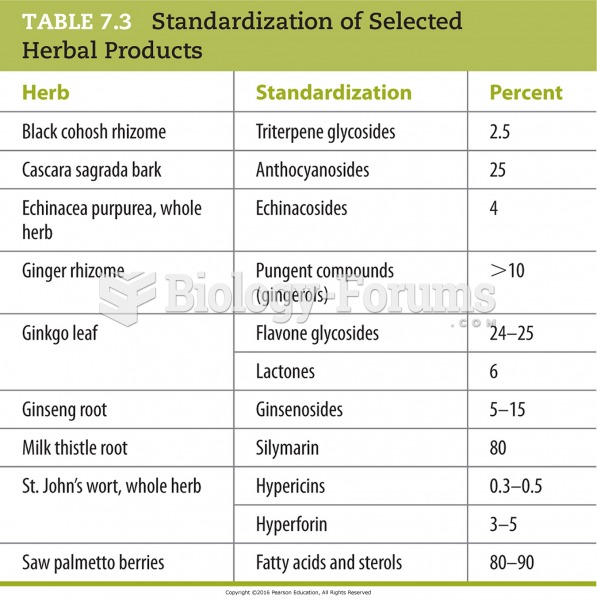Answer to Question 1
Correct Answer: 1
Rationale 1: Herbs cause no significant side effects is an incorrect statement regarding herbal therapy.
Rationale 2: Herbs can interact with prescription medication is incorrect. This is true regarding herbal therapy.
Rationale 3: Natural does not always mean better or safe is incorrect. This is true of herbal therapy.
Rationale 4: Not all natural substances are therapeutic is incorrect. This is true regarding herbal therapy.
Global Rationale: Herbs cause no significant side effects is an incorrect statement regarding herbal therapy. Herbs can interact with prescription medication is incorrect. This is true regarding herbal therapy. Natural does not always mean better or safe is incorrect. This is true of herbal therapy. Not all natural substances are therapeutic is incorrect. This is true regarding herbal therapy.
Answer to Question 2
Correct Answer: 1, 2, 3
Rationale 1: Elderly clients have an increased potential for drug interactions.
Rationale 2: Hepatic impairment causes an increased potential for drug interactions.
Rationale 3: Renal impairment causes an increased potential for drug interactions.
Rationale 4: Herbal products should be used with caution in pregnant women, but not because of an increased risk of drug interactions.
Rationale 5: Herbal products do not have an increased risk of drug interaction in the male population.
Global Rationale: The elderly population, clients with hepatic impairment, and client with renal impairments have an increased potential for drug interactions. Herbal products should be used with caution in pregnant women, but not because of an increased risk of drug interactions. Herbal products do not have an increased risk of drug interaction in the male population.







